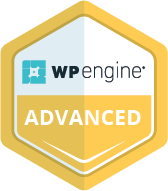
As a business owner, understanding SEO basics is essential to the success of your website. After all, the best way to get consistent traffic to your website is through search engine optimization, more commonly referred to as SEO. But, what should you do if you don’t have any clue where to start?
Unfortunately, many people believe SEO is too difficult to achieve tangible results and not worth the effort, but that’s far from the truth. We’ll show you basic best practices that you can use to improve your SEO and drive relevant traffic, leads, sales, and revenue to your business.
What is SEO?
Before we jump in, let’s start from the beginning.
Search engine optimization is the process of improving a website’s organic ranking within the unpaid search engine results page (SERP).
Implementing SEO basics into your website content can significantly enhance the visibility and ranking of your website and is an integral part of any business’s digital marketing strategy. At a basic level, Google ranks websites with high-quality, relevant content that matches user search intent. By incorporating SEO strategies into your content, you’ll enhance your website’s quality and relevance while improving its visibility. While results are not as immediate as pay-per-click (PPC) advertising, when implemented effectively, SEO will both increase the quantity of traffic to your website and the quality over time.
Why Should You Care About SEO?
People are searching for things online every single day, and SEO makes your content more discoverable. Think of it this way; your website stands a better chance of being clicked if it appears at the top of SERP. Without SEO, your website will be seen by fewer people, meaning fewer possibilities of reaching potential customers searching for the products or services you offer.
SEO Basics: 5 Best Practices to Follow
1. Understand keyword research
There’s no point in putting your time and effort into ranking for terms no one is searching for. Before you begin optimizing your website, you want to conduct thorough keyword research to be sure you are targeting keywords with search traffic potential. Your keyword research will reveal what keywords and phrases your target audience search the most and how frequently. Using high traffic, relevant keywords in your website content will increase your chances of visibility on SERP.
2. Write thorough, relevant content.
Once you’ve done keyword research, you’ll better understand popular terms and phrases that you can use in your content. Avoid keyword stuffing your content; instead, add keywords in sentences where it sounds natural and conversational. By doing so, you will produce quality content. Quality content means it matches the audience’s search intent. Relevant, quality content ranks well on SERP because it provides valuable information that gives users the information they are searching for. As a result, low-quality, irrelevant content won’t rank high on search engines.
3. Optimize your content with keywords
As part of the content writing process, you want to optimize your on-page SEO. This means incorporating targeted keywords in critical areas of your content, including the title tag, meta description, headlines, subheadings and throughout the body.
These elements are essential factors in ranking high on SERP because they make it easier for both the search engines and online users to understand what the content is about. Remember, relevant, quality content ranks well!
4. Include internal links in your content
Using internal links in your content is an effective way to optimize your pages and drive traffic to other parts of your site. This helps two things;
- Online users and search engines can easily navigate your content as they are led through your website via links related to each other.
- The page will rank higher. The more content is linked to, the more search engines assume it is informative and high quality.
5. Build off-page SEO
Beyond optimizing your website’s content, SEO basics focus on how you can improve your ranking outside of your website. The best way to achieve this is to have credible websites link to your website, also known as backlinks. If high-quality, credible sites mention your website, search engines assume your website must be high quality as well, giving your site a massive boost in SEO.
Another easy way to build off-page SEO is to claim your Google My Business Listing. This provides users with information about your business like the website, address, phone number and more, making it easier to find your business and increase your chances of ranking.
Improve your SEO with Candybox Marketing
SEO is as relevant as ever in the world of digital marketing, and incorporating these SEO basics into your website content is a great first step to boost your SEO. However, SEO is a moving target and staying on top of the latest trends to continuously improve and optimize your website can become overwhelming. If you’re struggling to rank on SERP or looking for help to boost the SEO of your website, reach out to us!
We’ve got an SEO program offering that will revamp your website for SEO optimization. From a complete audit of your site, technical resolutions to content optimization and more, we’ll refresh your website with SEO best practices. Are you interested in Google My Business? We can set you up with a profile optimized for best results. Connect with us, and let’s chat!
Are you looking for some more insights to boost your website content? Then, check out our latest blog, 5 powerful reasons why your business needs to start blogging.








